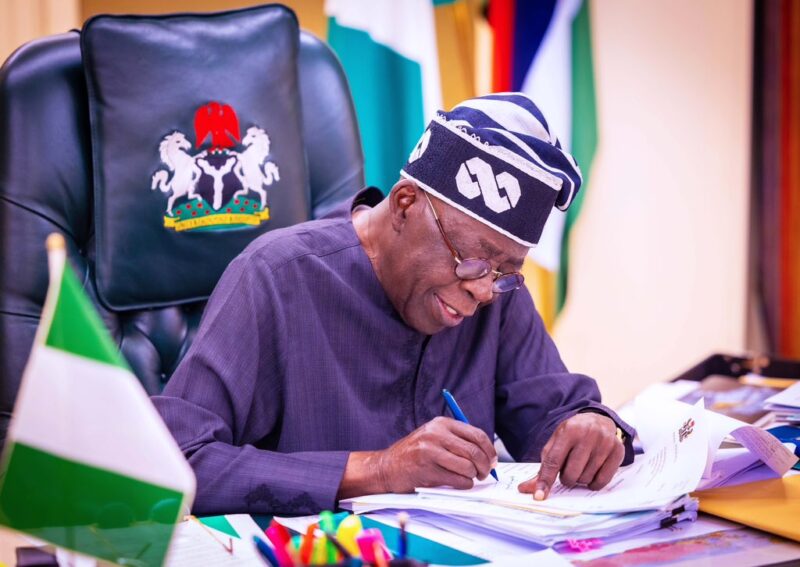Democracy & Governance
Nigeria’s Subsidy Removal: Past Reflections And Present Dilemmas -By Isa Salisu
When Lamido ask this question “1 Trillion Naira in subsidy to who? to who? sorry!…. I wonder who will provide the answer. The dismissal of Sanusi in 2014, after his remarks on the subsidy, raised questions about the motivations and motives behind what’s goes on in the downstream oil sector. This has added to the skepticism surrounding the subsidy removal and its impact on the Nigerian economy as the thing go like this to go on problem, to cease problems.

29 May, a red letter day in the history of Nigeria that dual co-related occurrences, cessation of Muhammadu Buhari’s tenure after 8 years and coming of Bola Ahmed Tinubu as new president to the republic of Nigeria, meaning the sway that makes the king, is the king himself now. First thing first, President Bola Ahmed Tinubu’s inauguration speech marked a turning point, as he announced the total removal of the subsidy. This move sparked nationwide discussions, with various opinions and perspectives being shared. But to me, I adhere to the saying that the two options need to measured like if we remove the subsidy what’s the outcome likewise if we go on with it what’s the outcome? Then again this subsidy removal makes me perplexed taking the whole thing a big hoax. Are we facing fuel shortage or chronic fuel price rise? People are at least hurt, the subsidy removal journey is difficult for Nigerians as currently many families struggling to put food on the table.
Back to subsidy removal, the whole thing go on a barrage for a long time which has the bask of many economic expects/analyst’s within the country and now let’s reflective on the year 2012. Looking back at the year 2012, when the subsidy was partially removed, we can gain some insights into the potential consequences. The removal of the subsidy in 2012 led to widespread civil unrest and a significant increase in inflation and fuel prices. The inflation rate rose from 10.9% to 11.9% within that year, while the price of fuel increased by 26%. Eventually, the government reached an agreement with the Nigerian Labour Congress (NLC) for a partial removal of the subsidy to address the concerns of the citizens.
As fondly called In weltanschauung, querulous people and those who keep shut the reality is a combination of truth and falsehood. Supporters of subsidy removal, such as former CBN Governor Sanusi Lamido Sanusi, argue that it is a necessary step to ensure the long-term stability of the economy. Sanusi emphasized the potential risks if the subsidy remained in place. He predicted that if the oil prices were to crash and the Naira depreciated significantly, Nigeria would face a severe crisis, including the inability to pay salaries, high inflation, and a strained government balance sheet.
When Lamido ask this question “1 Trillion Naira in subsidy to who? to who? sorry!…. I wonder who will provide the answer. The dismissal of Sanusi in 2014, after his remarks on the subsidy, raised questions about the motivations and motives behind what’s goes on in the downstream oil sector. This has added to the skepticism surrounding the subsidy removal and its impact on the Nigerian economy as the thing go like this to go on problem, to cease problems.
Surely all of us deserves the benefit of the doubt given by what we know that certainly, the decision to remove the fuel subsidy in Nigeria has always been a contentious issue, with significant implications for the economy and the livelihoods of Nigerians. One of the main concerns raised by critics of the subsidy removal is the potential for fuel shortages and the subsequent rise in fuel prices. Many Nigerians are already facing economic difficulties, and the removal of the subsidy adds an additional burden on households struggling to afford basic necessities. And yes, one need to consider the current economic landscape to fully understand the potential implications of the subsidy removal.
Lastly, the removal of the fuel subsidy in Nigeria is a complex and controversial issue. While some argue for its removal to safeguard the long-term economic stability of the country, others are concerned about the immediate impact on the welfare of Nigerian citizens already facing economic hardships. Am not an economist, but my advice to the government is that they need to highlights the importance of considering both perspectives and further evaluating the potential consequences of the subsidy removal in light of Nigeria’s economic challenges.










